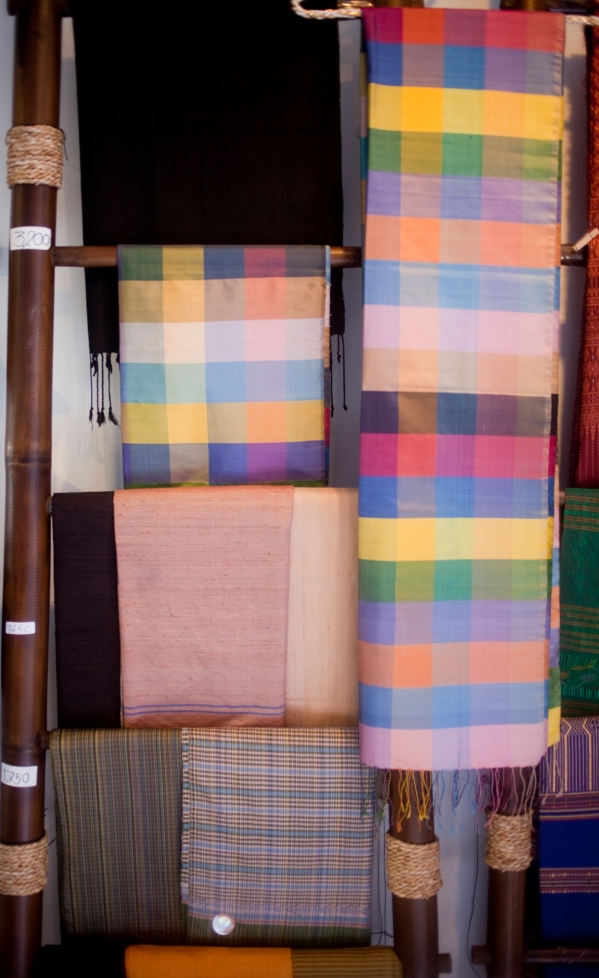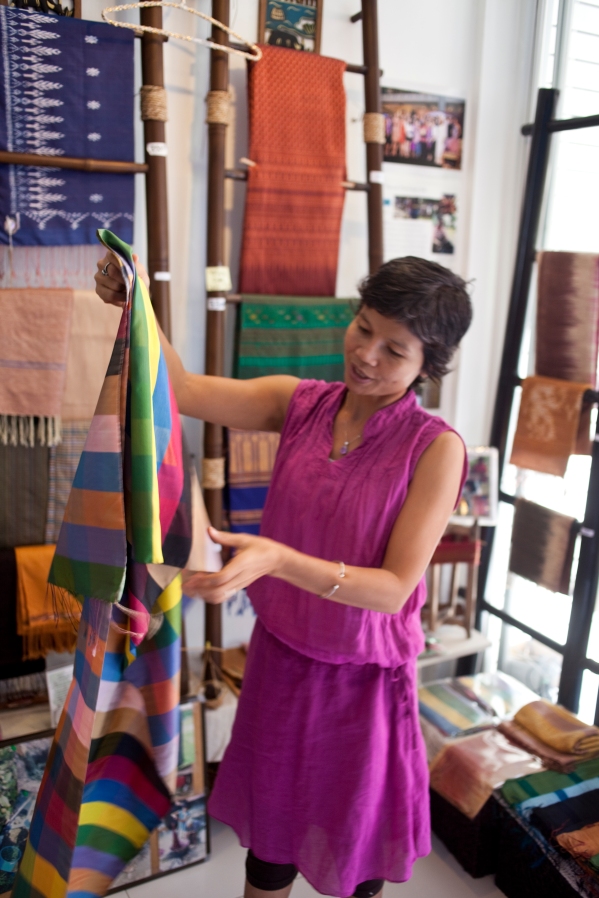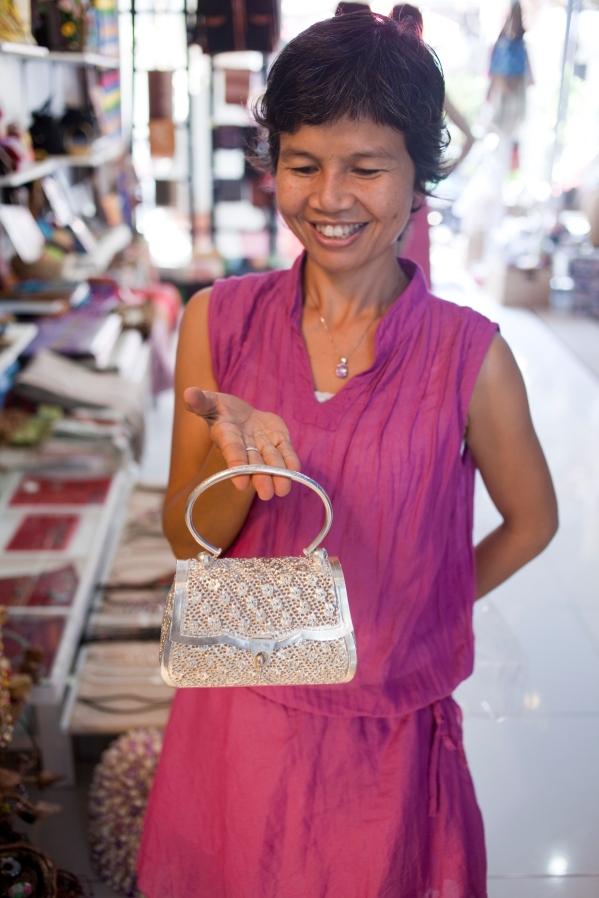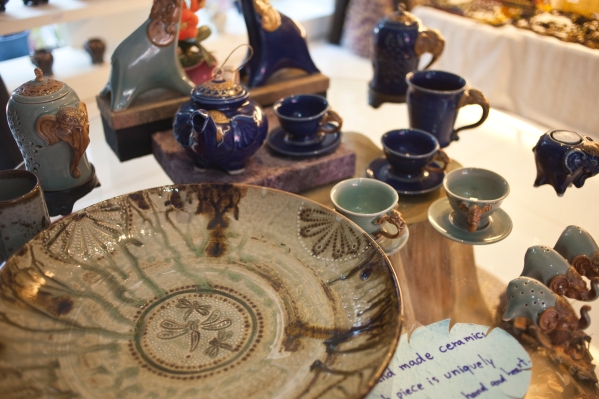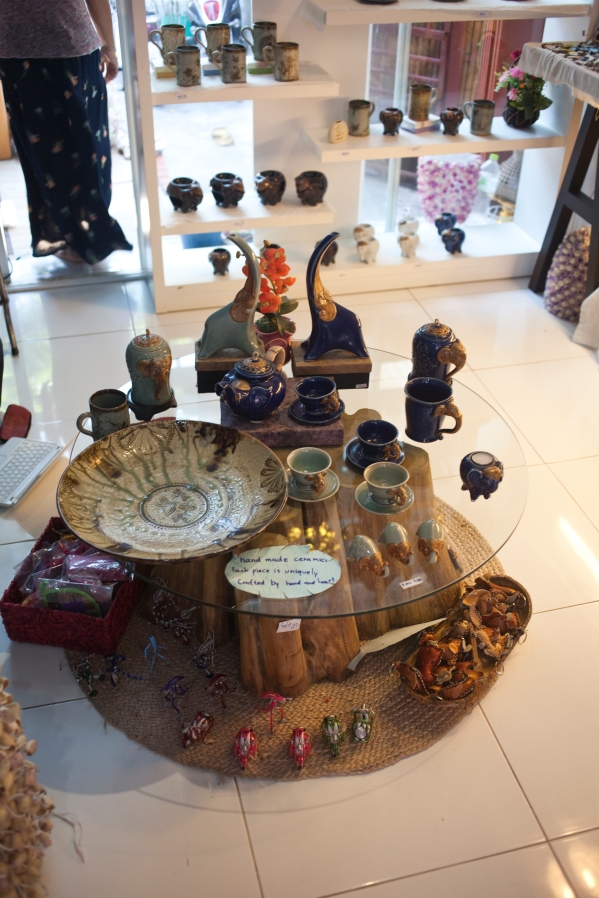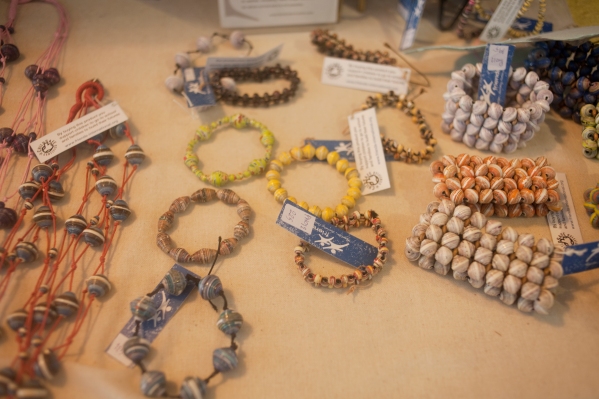The Family Tree is a family owned and run business backing onto the beach in Hua Hin, Thailand. This place is beyond words.. Really.. The second you step in you’re greeted by a super-warm smile from Dtor the owner, “sawasdee ka” (hello) and as you wander around looking at all of the amazing, handcrafted and unique products, you’re given a detailed story about the history of the item, information on the groups that have crafted it, and any questions you may have are answered in near perfect English.
You should also watch this video that explains a lot about the shop and its principles, and the story behind the products beautifully made by professional documentary maker, Laco Gaspar, based in Bangkok:
As Hua Hin is generally a place that well-to-do families or people come to have a two week break, the shop is situated perfectly to cater for those looking for a one-of-a-kind item, or present for their friends and family.
I really can’t sing the praises of this beautiful, serene, calm island in a storm enough.. If you visit Thailand, make one of your stops Hua Hin, okay not only for this shop it’s a nice place to visit with beautiful beaches and a good, broad selection of restaurants, hotels and resorts run by local Thais and long-term expats… If you need your creature comforts then this is a fine place to land and gather your senses.
Here’s just some of the amazing pieces on sale, followed by the story behind them..
First of all the silk, the mainstay of the shop, this is naturally dyed using traditional techniques. This silk and colouring has been given multiple awards by the Queen of Thailand. The colours are all natural and found in bark, leaves and berries. The master craftsman responsible for the colouring is Ajarn (teacher) Kor from Surin and he learned this skill from his mother in law. Some of the scarves are all hand dyed and woven by a women’s group – 30 ethnic Soay women from the Prangkeu district in Sri Sakat, North East Thailand – which provides extra income during the quiet times after rice planting and harvesting.
The bags and scarves are made by ethnic Kuy people only once per year. Ebony dyed silk is so special and rare because of the timing and weather during each season. Ebony fruits only flower in the rainy season, if there’s no rain then there’s no fruit to dye the silk.
It’s made by pounding the fruit using a pestle and mortar, and then massaging the dye into the silk, which is then hung out to dry in the sun.
The silk only turns black in the brightest of sunlight so the villagers are dependant on a mix of a perfect sunny season, preceded by a wet and rainy season. The bags are then cut and stitched by another women’s group in Surin. The Tae Moh Hai group (in Dtor’s village) make some of this cloth, and other cloth is sourced from nearby community groups in the area.
There are some stunning examples of fine silverwork that I know girls would love! Again, these are one-of-a-kind items that you won’t find anywhere else in the world. Made in Ban Kwao in Surin province. The people are of Khmer descent (Surin is next to Cambodia) and are traditional silversmiths. We buy from a local family in the village, who are keeping the silversmithing traditions alive.
And on to the hats and bags made from Sisal, which grows around 2 metres tall. Each leaf contains around a thousand fibres which can be woven into twine and made into natural products that are beautiful and hard wearing.
Sisal is grown chemical-free at Hup Kapong Royal Project Learning Centre which is just outside Hua Hin in Petchburi. Again the products are made by over 30 housewives in a group and they separate the fibres by hand! before weaving, dying and cutting the Sisal into a variety of unique and eye-catching products. The project itself is initiated by the King of Thailand, and is a good example of best practice in Thai community development. I didn’t get any photos sadly, but when you go you should check them out.
Instead I photographed these bags which are made by a community crafts group in Buriram.
The stuff I think my mum, and Aunt Pam would love is the pottery.. Koy and Oh’s pottery is crafted piece by piece from local earth. They explore the synergy between earth, people, nature and art and the pottery shares the transience and uniqueness of each moment. And especially the wonder of rediscovering ordinary objects which are laying around us all the time, going unnoticed!
Koy and Oh both sculpt in the fields, rivers, forests and mountains in the Chiang Mai province. They carefully observe fallen leaves, twigs and stones which are then etched into a single piece: a single moment in art and nature. To protect the environment their work is on a very small scale.
Recycled products are also a massive part of The Family Tree’s stock, necklaces and jewellery that’s essentially waste paper which gives income to unemployed women in Bangkok. In 1997 after the Asian economic meltdown, training programmes took place in Bangkok to teach alternative occupations to those now looking for work.
Unemployed women from low-income city communities were taught to create products from waste paper and then evolved their teaching to include many different types of discarded paper.
The sales provide fairly-paid home employment to women, many of whom are single parents that work just isn’t possible for.
There’s also necklaces and purses which are made from recycled food packaging by caretakers in marginalised communities. The purses and necklaces enable vulnerable caretakers and children to become skilled, functional and independent members of their communities.
The product that hit me the most and made me empathise completely are the recycled coconut jewellery items. The Christian Leprosy foundation was established in 1963, and until 2007 its rehabilitation department built and enhanced the skills of Thais suffering from leprosy, HIV and AIDS and disabilities to help them develop skills, earn extra income and become self sufficient.
Sadly, in 2007 the department closed, but 17 men and women decided to establish the ‘Manorom Group’ to continue the good work. By working together these craftsmen and women support each other to stay positive and earn a wage.
Here’s something that London women would go mental for.. Natural hand-made and inspiring soaps created by a women’s cooperative.
After fire destroyed their community in 2004, the Yon Jai Spa women’s cooperative in a slum area of Bangkok, after 4 years waiting to be re-housed, were determinded to embrace a new vision, and took to creating these beautiful cosmetics and soaps to help improve their lives, it provided a vital income.
The women manage the production of their inspiring soaps which are all hand-milled and cut using only fresh and natural ingredients.

Natural hand-made soaps and lotions by a Bangkok women’s community after fire devastated their homes
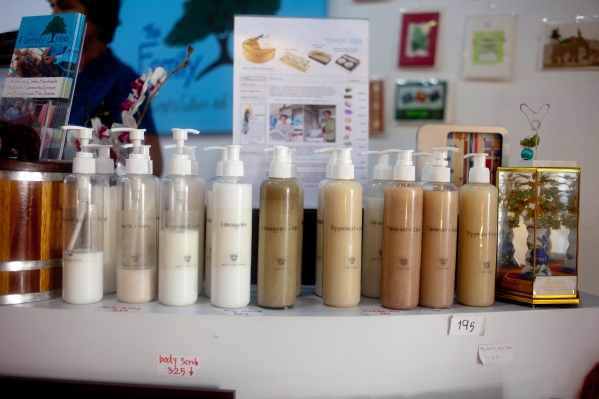
Natural hand-made soaps and lotions by a Bangkok women’s community after fire devastated their homes

Natural hand-made soaps and lotions by a Bangkok women’s community after fire devastated their homes
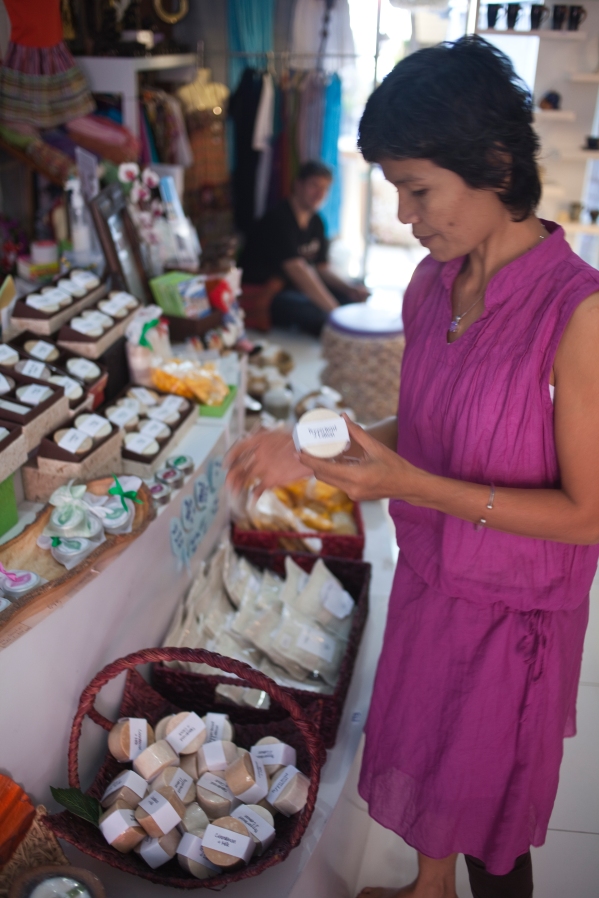
Natural hand-made soaps and lotions by a Bangkok women’s community after fire devastated their homes
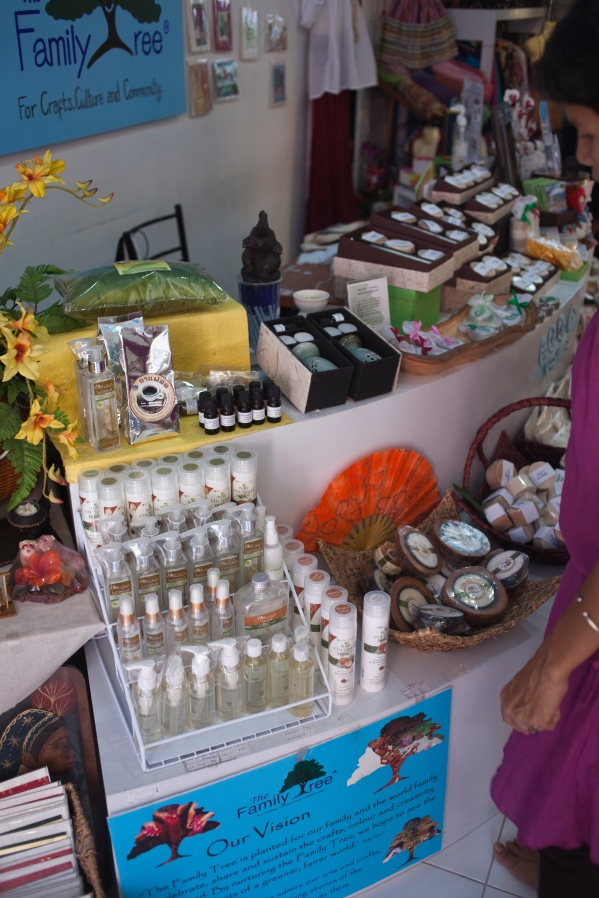
Natural hand-made soaps and lotions by a Bangkok women’s community after fire devastated their homes
This stuff has to be seen and heard to be believed, I urge you next time you visit Thailand to take the short 2.5 hours, 180 Baht trip by minivan to Hua Hin from Bangkok, stay there, absorb, and definitely visit The Family Tree.


